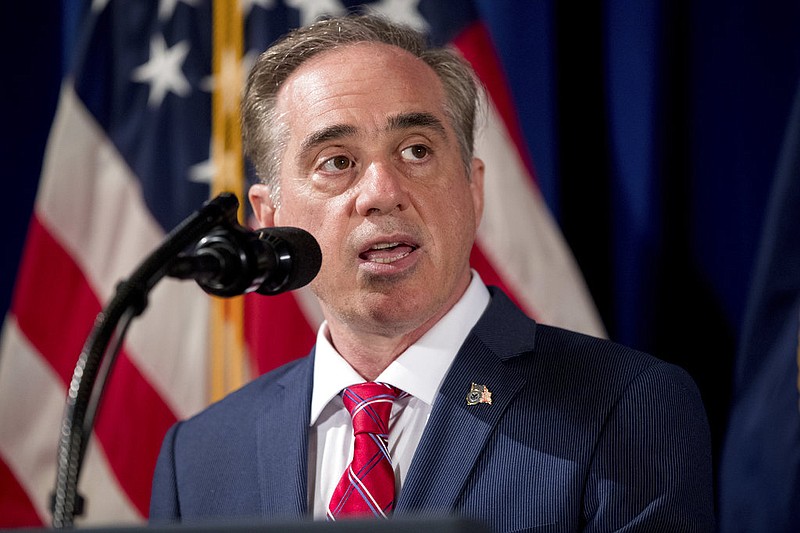WASHINGTON (AP) - Veterans Affairs Secretary David Shulkin touted new efforts Wednesday to expand urgent mental health care to thousands of former service members with less-than-honorable discharges, even while acknowledging his department isn't seeking additional money to pay for it.
Testifying at a House hearing, Shulkin offered new details on his initiative announced in March to stem stubbornly high rates of suicide. Stressing a need at that time for "bold action," he noted the additional coverage would help former service members who are more likely to have mental health distress. Of the 20 veterans who take their lives each day, about 14 had not been connected to VA care.
There are more than 500,000 former service members with other-than-honorable discharges. Still, Shulkin indicated there won't be much additional spending to pay for the medication, lab work, case management and psychotherapy now being covered.
"There is no higher priority, so we will do this within the funding the president has proposed," Shulkin told the House Veterans' Affairs Committee. He did not indicate what other programs could be cut.
"We are not going to let the fact there are not additional monies right now to prevent us from offering these additional services," Shulkin said.
It was one of several gaps in the VA's proposed budget Shulkin acknowledged Wednesday. He also said a massive appeals backlog of more than 400,000 claims from veterans unhappy with their disability payouts will still take nearly 10 years to resolve, even with legislation the House passed on Tuesday. The measure aims to streamline the process, because the budget proposal doesn't currently account for that. "I don't really have an answer for you on that backlog," he said, citing a "new injection of funding to hire more lawyers and support staff" that would be needed.
Separately, the House approved legislation Wednesday to require the VA to fully comply with appointment scheduling practices that followed a 2014 scandal at the Phoenix VA medical center. Some veterans died waiting months for appointments. Wednesday's vote was 419-0.
The bill now goes to the Senate.
Shulkin, meanwhile, announced plans to set up a White House telephone hotline to receive veterans' complaints about the VA, a key campaign promise from President Donald Trump. Shulkin said a "soft launch" was planned June 1, with "the full White House hotline" operating by the end of August. Trump had pledged "a private White House hotline," answered by a real person 24 hours a day, to make sure no complaint "falls through the cracks."
Shulkin said the VA was now contracting with professional call centers. He did not provide an estimate on costs.
Beginning this summer, veterans with "other than honorable" discharges from the military would be able to receive urgent mental health care at a VA emergency room, outpatient clinic or Vet Center. They can also get help by calling the Veterans Crisis Line at 1-800-273-8255 and pressing 1, or texting 838255. "Other than honorable" discharges are typically for misconduct, such as violence or use of illegal drugs, and can prevent veterans from receiving federal benefits.

